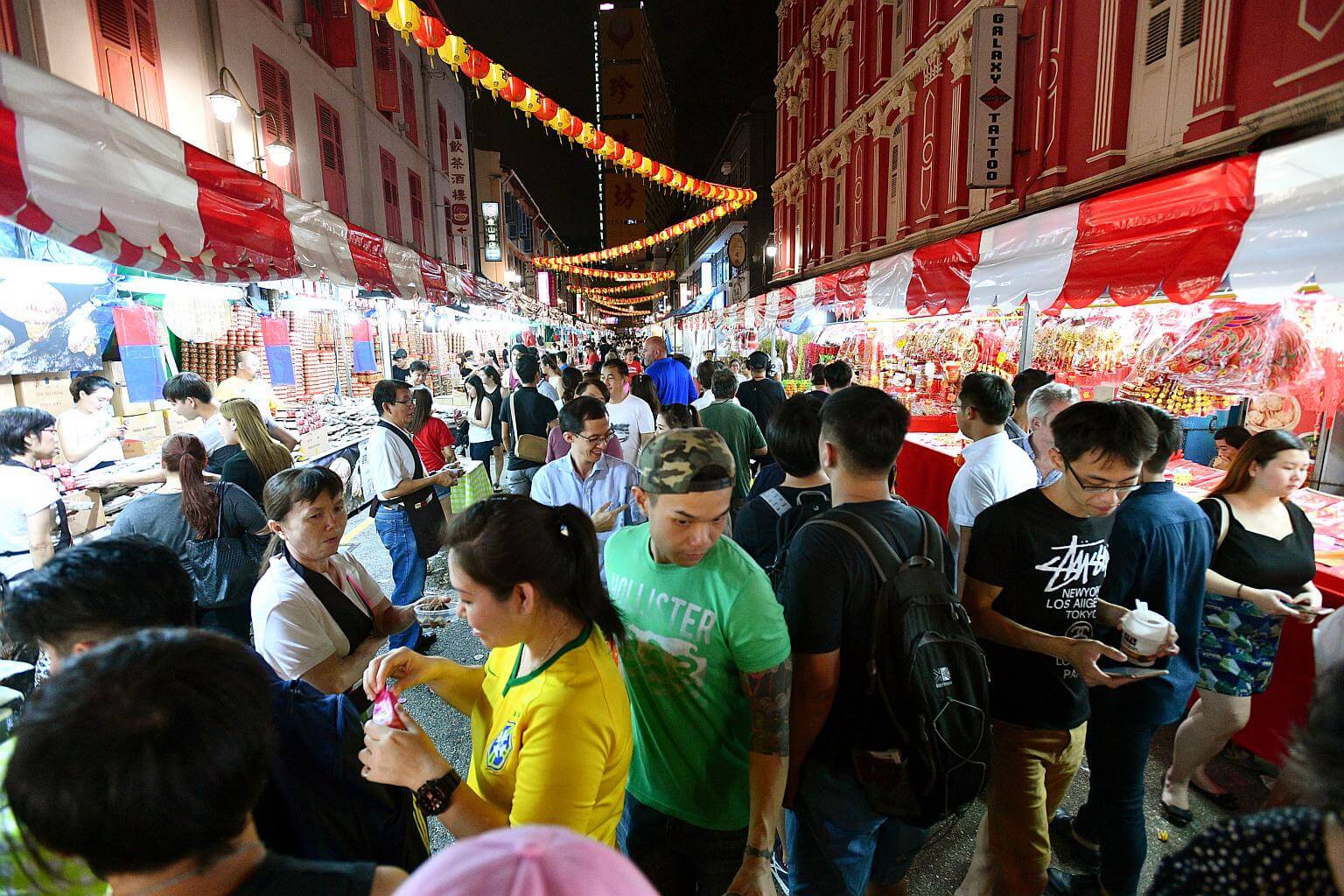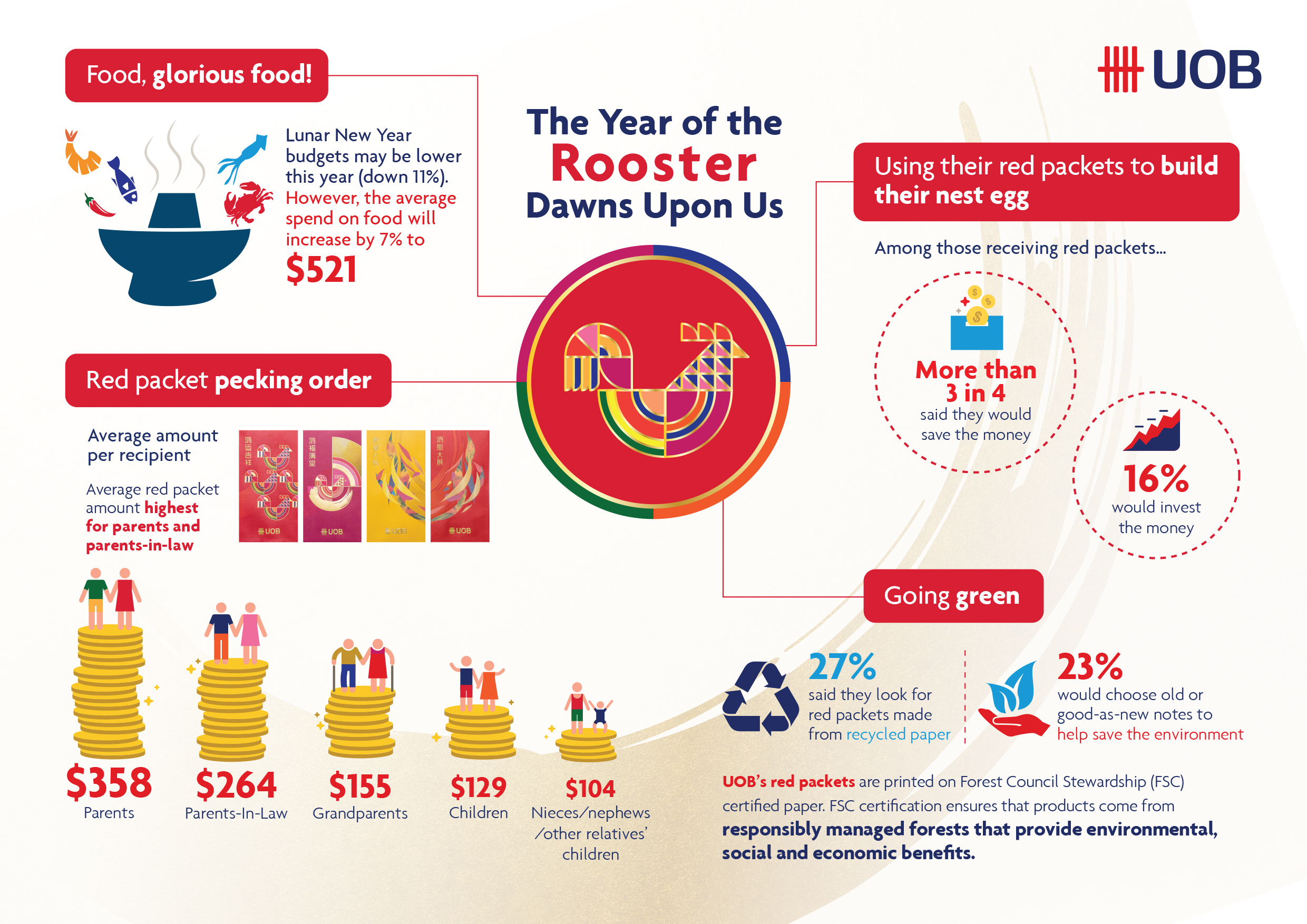Singaporeans plan to spend less this Chinese New Year: Survey
Sign up now: Get ST's newsletters delivered to your inbox

Shoppers at the Festive Street Bazaar and Carnival in Chinatown, on Jan 7, 2017.
ST PHOTO: LIM YAOHUI
SINGAPORE - Singaporeans are tightening their belt this Chinese New Year, with plans to cut overall spending, according to a recent United Overseas Bank survey.
The respondents said they intend to spend an average of $2,503 each, down by 11 per cent from last year's budget of $2,805.
About 500 people aged between 18 and 55 years old were polled from November to December on the behaviours and attitudes for the upcoming Chinese New Year.
UOB economist Francis Tan said the belt-tightening for the festive period is not unexpected in view of the lower wage growth last year and the expectation of slower economic growth in the next 12 months.
The survey found that four in five of those surveyed expected the economic situation this year to be the same as or worse than 2016.
"Although Singaporeans are planning to spend less this Lunar New Year, it is heartening to see that the majority want to uphold traditions such as reunion dinners and the giving of red packets," added Mr Tan.
Spending on food is expected to increase by 7 per cent over the last year to S$521 - almost half of which will go towards celebrating a reunion dinner with loved ones.
Mr Tan said the desire to treat their families does not appear to have been hampered by the higher food prices.
The increase in food cost is mainly due to factors including poor weather conditions that have affected food supply, as well as a weaker Singapore dollar which made it more costly to import food.

"Food plays an important part in the way Singaporean families bond with one another and festive dining would definitely be higher in the pecking order during Lunar New Year celebrations. It is not surprising to see that people are continuing to focus on food during the festive period," noted Mr Tan.
Singaporeans are also not penny pinching on the tradition of giving red packets - this will make up almost a quarter of the total budget, the survey found.
UOB said parents and parents-in-laws will receive the highest amounts in their red packets this year, at S$358 and S$264 respectively.
Similar to last year, more than three out of four respondents indicated that they will save the money they receive in their red packets, while 16 per cent will invest it.
Almost 90 per cent of respondents receiving red packets on behalf of their children will deposit the money into their child's savings account.


